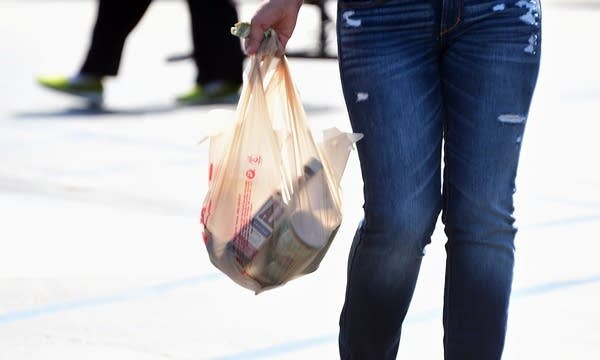The debate over banning plastic bags explained

About 200 cities and counties in the United States, mostly in California where this photo was taken Sept. 30, 2014, ban or tax plastic bags, according to the environmental group Californians Against Waste.
Frederic J. Brown | AFP | Getty Images 2014
Go Deeper.
Create an account or log in to save stories.
Like this?
Thanks for liking this story! We have added it to a list of your favorite stories.


